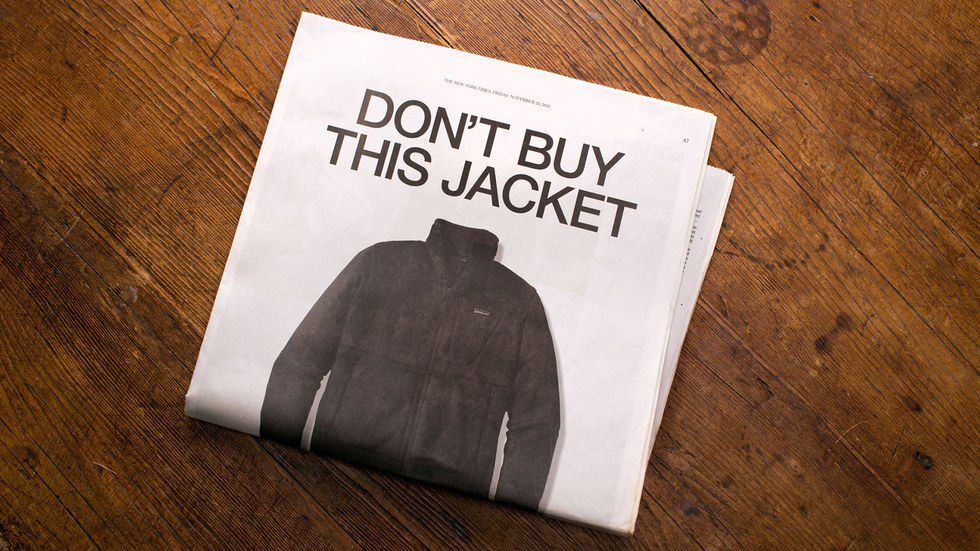What is the first thing you look at when you’re shopping and you see something that you like? Is it the price? The brand? The size? How about where it was made? How will this purchase affect the lives of others?
Wow, sorry. That got deep fast.
But truly, what is sustainability? Most people are quite aware of what this idea encompasses.
By Merriam-Webster definition, sustainability means involving methods that do not completely use up or destroy natural resources. In simpler terms, consuming less. Being environmentally aware. There are many ways for humans this day in age to be sustainably-minded – riding a bike instead of driving, turning off lights that aren’t in use, reducing water use, recycling and composting waste. However, one thing many people don’t give a second thought about is the sustainability of their clothes, and I don’t just mean how long an article of clothing will last.
Being sustainable when it comes to the clothes you wear means making conscious purchases that better the environment and the economy.
An ad that Patagonia ran on Black Friday to remind customers that they should only buy what they need.
If this thought has never crossed your mind before, you’re not alone. It wasn’t even brought to my attention until recently that the origins of clothes can be constituted as a sustainable matter. How can your shopping habits be socially and environmentally responsible?
An excellent starting point is to look into the brands that you support through your shopping habits, and to investigate their views on the subject of sustainability. It might be surprising to hear that there is a page dedicated to this information on nearly every company’s website. Sustainability not only betters the environment, but it also works to promote economic growth.
Being an actively sustainable consumer is good for the people and good for you. For example, if a clothing item you are buying is made in America, chances are that everyone who was involved in making the product was paid a fair wage. Additionally, you are lending support to the American economy. Unfortunately, these American-made finds can be tough to come by, and if you check the tags in your closet, you might find only a couple “Made in USA” items. With most American companies outsourcing their labor these days, another great option is to look at the quality of companies who choose to outsource. Many companies have become very active in supporting their international sites with fair labor policies, ensuring their employees are granted fair, safe and humane working conditions. When was the last time you put on your shirt and thought, I wonder what kind of life the person who made this shirt lives?
Even though Patagonia has grown in popularity over the years, they still maintain the same core values. These photos are from their Worn Wear page, where they encourage consumers that if something gets broken, fix it.
On a realistic level, buying a sustainably made t-shirt will not immediately cause a chain-effect that shuts down an unfair, unsafe factory in India. People all over the world need jobs, and it is unrealistic for the whole world to live a middle-class lifestyle. Supporting the growth of companies that make socially and environmentally responsible choices for us is the best we as consumers can do.
Shopping consciously isn’t always easy - a big component that defers people from purchasing responsibly made items is cost.
“I could get that sweater at Forever 21 for a quarter of the price.”
Why do you think that is? It’s because the person who made that sweater makes $2.00 an hour.
As a college kid, I’m broke as a joke. However, I still actively make the choice to buy quality items and spend the money. To me, if it is sustainable and I know that the employees were treated fairly, it is worth the extra cost. I know that the items I choose to buy have a much better story behind them, and that the quality of the products I’m buying will yield years of use. I consistently choose fair trade, Made in the USA, and organic companies.
It’s easy to impulse shop, especially when the Internet is at our fingertips. Instead of choosing the easy way out, choose to take the time and find the companies that treat their employees, products, and consumers with more care. Be a conscious shopper. It’s essential to realize that what you buy has little to do with you, and everything to do with the world around you. Maybe from now on, the “Made in ______” should be the first thing you take into account when shopping. Next time you’re wavering on an impulse buy, think of the story behind the item and realize that there’s more to the story behind the seams.























